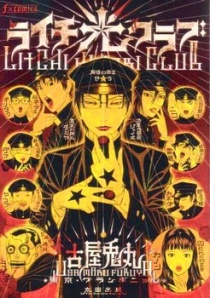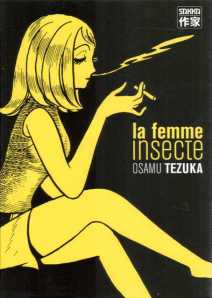It’s a good thing that we use Midtown Comics for our Pick of the Week round robin, as the Diamond-focused ComicList is a barren wasteland this week. So, instead, I will look back through my Twitter archives to point you at some fun and enlightening things to read online:
- Two of my favorite discussions in Tom Spurgeon’s Comics Reporter Holiday Interview series were with Brigid Alverson and Dirk Deppey.
- Christopher (Comics212) Butcher celebrates Japan’s extremely advanced, even daring Kit Kat culture.
- Anna at Manga Report will be hosting the next Manga Moveable Feast starting Sunday, Jan. 15, and featuring Julietta Suzuki’s Karakuri Odette (Tokyopop).
- Jason Thompson takes a meaty look at a previous MMF topic, Yuki Urushibara’s Mushishi, in his latest “House of 1,000 Manga” column.
- At Robot 6, Kevin Melrose reveals his choices for the 50 best comic covers of 2010.
- I always enjoy Monkey See’s Pop Culture Happy Hour podcast, and this week the participants have a bracing discussion of that Patton Oswalt piece on the death of geek culture, which is interesting even if, like me, you can’t be bothered to read the Oswalt piece that triggered the conversation. (There’s also some perfectly needless sports blather, which I always find disproportionately irritating in this context. Is it just me, or should there be more reliably sports-free zones, particularly when the focus is ostensibly pop and/or geek culture?)
















